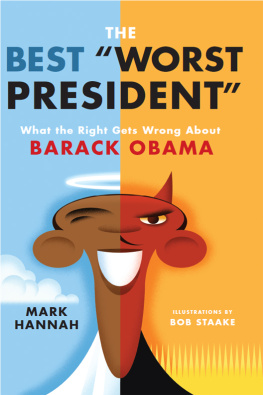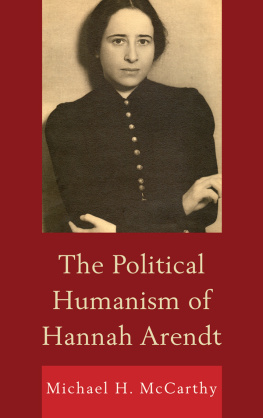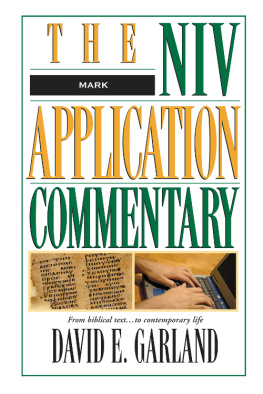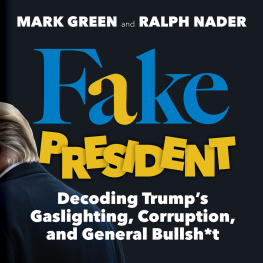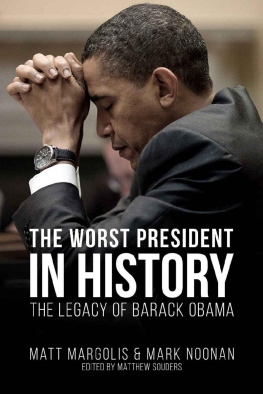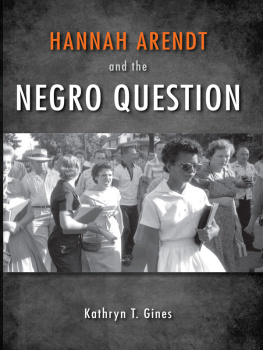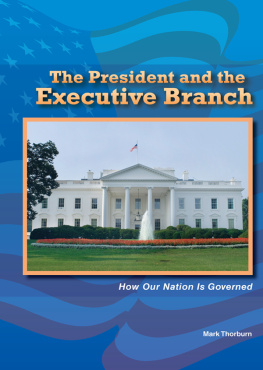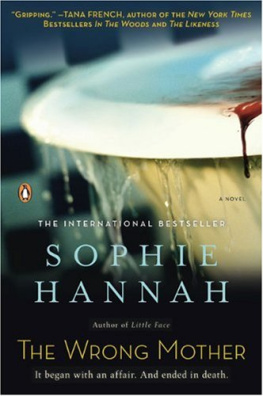Mark Hannah - The Best Worst President
Here you can read online Mark Hannah - The Best Worst President full text of the book (entire story) in english for free. Download pdf and epub, get meaning, cover and reviews about this ebook. year: 2016, publisher: HarperCollins, genre: Politics. Description of the work, (preface) as well as reviews are available. Best literature library LitArk.com created for fans of good reading and offers a wide selection of genres:
Romance novel
Science fiction
Adventure
Detective
Science
History
Home and family
Prose
Art
Politics
Computer
Non-fiction
Religion
Business
Children
Humor
Choose a favorite category and find really read worthwhile books. Enjoy immersion in the world of imagination, feel the emotions of the characters or learn something new for yourself, make an fascinating discovery.
- Book:The Best Worst President
- Author:
- Publisher:HarperCollins
- Genre:
- Year:2016
- Rating:5 / 5
- Favourites:Add to favourites
- Your mark:
- 100
- 1
- 2
- 3
- 4
- 5
The Best Worst President: summary, description and annotation
We offer to read an annotation, description, summary or preface (depends on what the author of the book "The Best Worst President" wrote himself). If you haven't found the necessary information about the book — write in the comments, we will try to find it.
The Best Worst President — read online for free the complete book (whole text) full work
Below is the text of the book, divided by pages. System saving the place of the last page read, allows you to conveniently read the book "The Best Worst President" online for free, without having to search again every time where you left off. Put a bookmark, and you can go to the page where you finished reading at any time.
Font size:
Interval:
Bookmark:
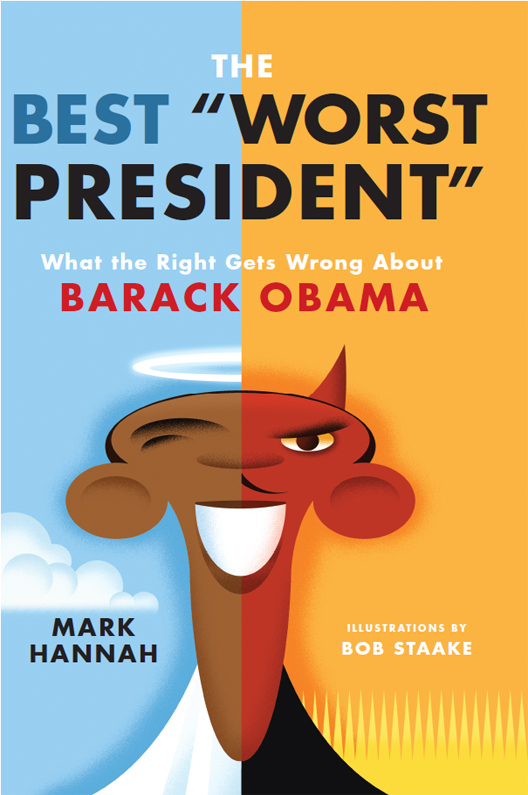
In memory of my father, Stephen,
for teaching me how to debate.
In dedication to my wife, Jennifer,
for teaching me how not to.

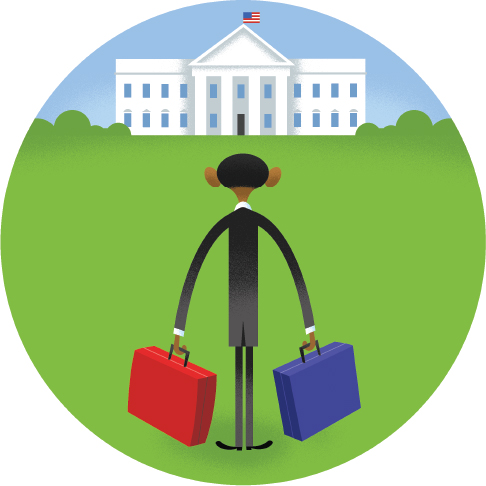
W hen I met Barack Obama in the spring of 2004, I didnt see either the halo or the horns. But then again, I wasnt looking for them. I wasnt paying him much attention at all, for that matter. It was three months before a stirring speech at the Democratic National Convention would catapult him onto our countrys political radar, but at the time, hardly anyone had heard of him. For me, he was the least prominent and most accessible of a pack of politicians huddled backstage at a Chicago Hyatt: we both stood over six feet tall, but we were the two little guys standing with a few political giants. I was a low-level staffer on John Kerrys presidential campaign, producing political events across the country. Obama was a lanky candidate for the junior Senate seat in Illinois who just a decade earlier had been a newly married law school lecturer with no elective experience and lots of student loan debt. And yet there we were, standing with Senator Kerry, Chicagos dynastic mayor Richard Daley, and Illinoiss beloved senior senator Dick Durbin who, just a few years earlier, had been rumored to be on Al Gores vice presidential short list.
Or rather, Senator Durbin was supposed to be there.
Hundreds of well-heeled, well-dressed donors had finished their dinners and were waiting for the speaking program to begin, but Durbins people had called to say he was running late. Our campaigns fund-raising staff kept glancing over at me impatiently: these donors werent used to delays. After a few more agonizing minutes, Durbin finally entered the backstage area and I began to rattle off my briefing. Welcome, Senator Durbin. Now, Mr. Obama, youll be introduced onto the stage first and after your remarks youll introduce Mayor Daley But my spiel was promptly drowned out. Kerry, Durbin, and Daley hadnt seen each other in some time and were garrulously catching up. After a few other feeble attempts to get their attentionGentlemen, please, the donors have finished their dinners. Were running behindObama shot me a sympathetic grin and then interrupted his colleagues. With one self-assured hand on the shoulder of the mayor on whose turf we stood and another on the shoulder of his partys presumptive nominee for president, the little-known senatorial candidate exclaimed in a booming baritone, Guys, guys! Let the young man speak!
Stunned, Kerry, Durbin, and Daley whipped their heads around to examine the interrupter. Who the hell is this guy? was written all over their faces. But those expressions quickly turned to Well, I guess we should get this show on the road. The four of them turned to me. In the spirit of the awkward moment, I stammered through my briefing and (finally!) cued the offstage introduction.
I learned later it was at this Chicago fund-raiser that Kerry decided to invite Obama to give the keynote speech at the Democratic National Convention. But regardless of how it came to be, the speech channeled Americans frustration with our increasingly partisan political culture. Theres not a liberal America and a conservative America, Obama insisted. Theres a United States of America. With this speech he became a star within the Democratic Party, and a likely contender for the partys future presidential nomination.
Its worth repeating that no one quite knows how history works, and I may certainly be deluded in thinking I had any part in it. But I cant help wondering if John Kerrys selection of Barack Obama as the keynote speaker was maybe influenced in some tiny, tiny way by the impression Obama made when he spoke up for Kerrys bumbling junior staffer. In any case, Im sure the reaction I saw on John Kerrys face in that moment wasnt affront: it was a mixture of admiration and apprehension. And it was precisely this mixed reaction that Barack Obama would soon elicit from the country as a whole.
I found Obamas little intercession on my behalf was one of the kinder things anyone had done for mefrankly, he struck me as a nice and genuine guy. But because it seemed like he came out of nowhere, voters and pundits didnt know what to make of him. (And kindness isnt the only thing you want out of a president, after all.) As time passed, Obama became a sort of Rorschach test upon which the American people projected their own hopes and fears. Ultimately, dueling narratives about him emerged, which persisted throughout his presidency. Four years after he self-assuredly inserted himself into the conversation at the Chicago fund-raiser he inserted himself into the presidential race with the same distinguished confidence. This self-assurance is now interpreted by supporters as decisiveness and by critics as arrogance or vanity. As a senatorial candidate, he was quick to dispense with small talk backstage at that Chicago Hyattjust as he dispensed with schmooze sessions on Capitol Hill after taking presidential office. This has led supporters to label him as independent but has led critics to label him as aloof and disengaged. There might not, in fact, be a liberal America and a conservative America. But there is a liberal idea of Barack Obama and a conservative idea of him.
The conservative idea found one of its many mouthpieces in former vice president Dick Cheney, who, in an interview with CNNs Jake Tapper in the summer of 2014, called President Obama the worst president in [his] lifetime. A year later, as if trying to outdo himself, Cheney went on to insinuate the president might actually be conspiring to undermine the country he leads. When asked by conservative radio host Hugh Hewitt whether he thought the president was naive, Cheney suggested that if you had somebody as president who wanted to take America down, who wanted to fundamentally weaken our position in the world and reduce our capacity to influence events, turn our back on our allies and encourage our adversaries, it [sic] would look exactly like what Barack Obamas doing.
Interesting stuff, and not just because its terrifically hard to imagine why a president would want to sink his or her own ship. Even if they muddle his historical legacy, these competing ideas about President Obama can be productive in helping us understand the different values that underpin this era in our political life. After all, our democracy was founded on an unbridled competition of ideasand some of the ideas that swirled around more than two hundred years ago when the Constitution was framed were as ludicrous as the idea that our own president wasnt actually born in the United States or that he is trying to take America down.
We could also say that theories about anythingbirth certificates, education policy, drone strikes, everything the president has done and everything weve thought about him, positive or negativeare meant to be tested with the application of observable facts. In the following pages I aim to take the conservative theory of President Obama and debunk it by systematically examining it in light of the relevant facts. Fear not that this will be tedious: well be examining some marvelous hypocrisies, shedding light on some fantastic fibs, and showcasing some of the Obama administrations surprisingly underappreciated triumphs.
Font size:
Interval:
Bookmark:
Similar books «The Best Worst President»
Look at similar books to The Best Worst President. We have selected literature similar in name and meaning in the hope of providing readers with more options to find new, interesting, not yet read works.
Discussion, reviews of the book The Best Worst President and just readers' own opinions. Leave your comments, write what you think about the work, its meaning or the main characters. Specify what exactly you liked and what you didn't like, and why you think so.

